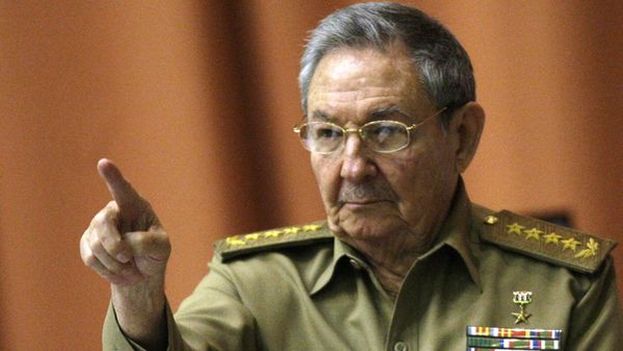
![]() 14ymedio, Havana, 19 May 2017 — The government rushed on Friday to accomplish some pending tasks before Raul Castro leaves the presidency. The Third Plenary Session of the Central Committee of the Communist Party ratified two programmatic documents at a meeting where Marino Murillo reappeared, vice-president of the Council of Ministers removed from the family photo of power as of November of last year.
14ymedio, Havana, 19 May 2017 — The government rushed on Friday to accomplish some pending tasks before Raul Castro leaves the presidency. The Third Plenary Session of the Central Committee of the Communist Party ratified two programmatic documents at a meeting where Marino Murillo reappeared, vice-president of the Council of Ministers removed from the family photo of power as of November of last year.
Just 40 days before the promised deadline, the Conceptualization of the Cuban Social and Economic Development Model and the bases of the National Economic and Social Development Plan were approved until 2030. The package also included compliance with the new modifications to The Guidelines of the Economic and Social Policy of the Party and the Revolution.
A note read on the noon edition of the television news reported that President Raul Castro considers these documents as “the most studied, discussed and rediscussed in the history of the Revolution.” The approval of the texts occurs after a long process in which, it is said, more than 1.5 million Cubans participated.
The Plenum agreed to submit to the consideration of the National Assembly the Conceptualization of the Model and the Guidelines, but with regards to the Plan it only proposed to inform the parliamentarians about its approval.
Missing in the document are topics of great interest to the population such as the elimination of rationing system, the permitting of professionals to exercise self-employment in their specialties, or human rights.
The ratification of these programs comes at a difficult time for the country. Last year, the island experienced a 0.9% decrease in its Gross Domestic Product (GDP) for the first time since 1995. Stopping this drop and obtaining an increase in GDP is the government’s main economic objective for this year.
The political and economic crisis in Venezuela has caused an abrupt drop in oil imports to the island. Of the 100,000 barrels a day received by Cuba at a subsidized price during the best years of closer ties with Venezulea, analysts estimate that now only less than half as many barrels are arriving.
A Russian oil company has taken on providing an emergency supply and plans to send in the next few months about 250,000 tonnes of oil and diesel to the island where, since last year, the consumption of electricity in state entities has been rationed and cuts have been applied to the fuel supply.
The current scenario directly raised questions about what was established in the Plan for 2030.
The Conceptualization does not reference that the ultimate goal of Cuban socialism is to build the communist society; nor does it mention as a goal the suppression of the exploitation of man by man.
Missing in the document are topics of great interest to the population such as the elimination of rationing system, the permitting of professionals to exercise self-employment in their specialties, or human rights.
